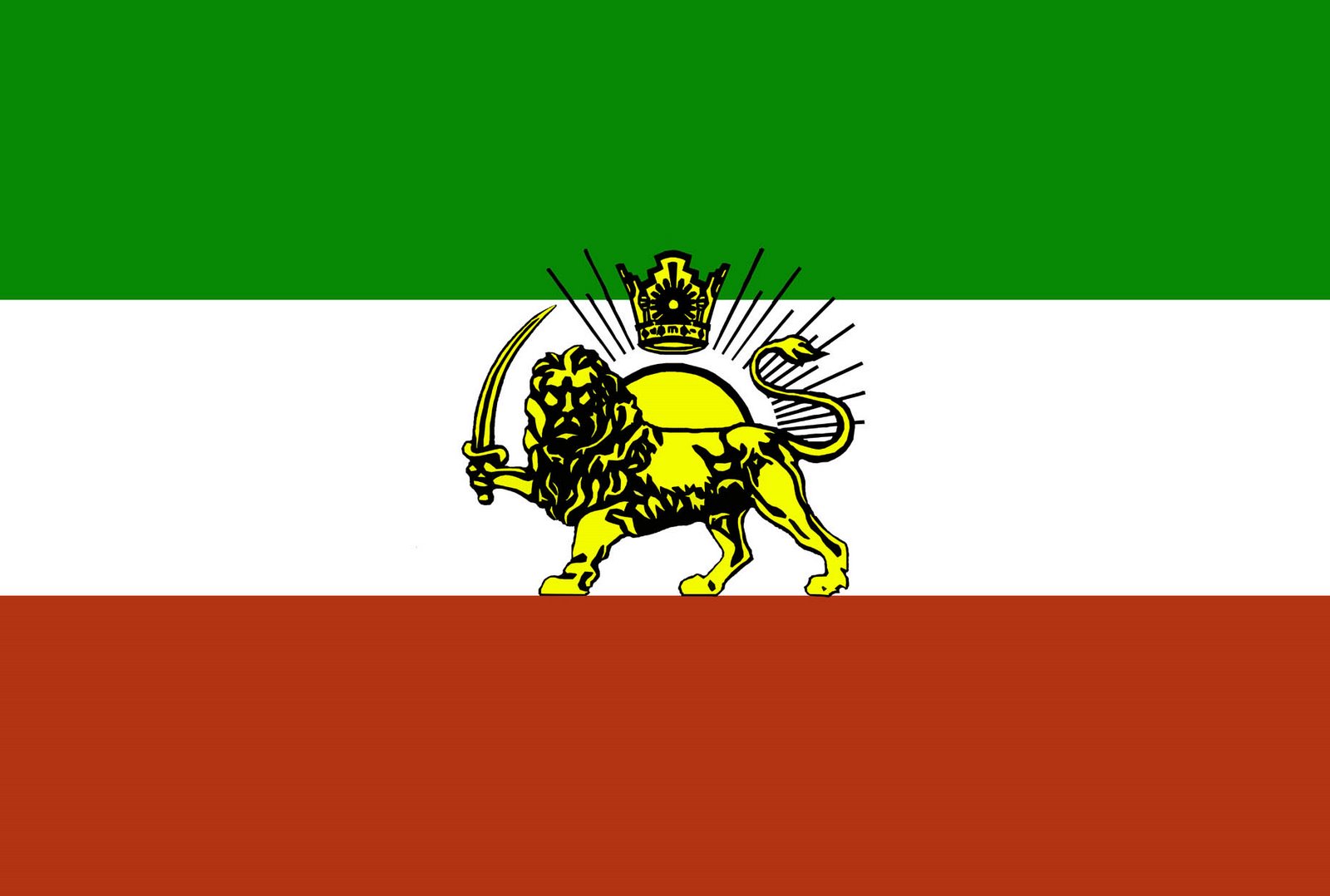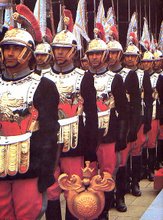Oil Nationalization was not something that was all of a sudden brought to the table by PM Mossadegh, before him PM Razmara was pushing for it in a diplomatic and rational manner which was in the national interest of Iran - unlike PM Mossadegh who acted radically, irrationally, and emotionally endangering our national interests. I say this because a lot of idealists chose to look upon Dr Mossadegh as a flawless God-like figure when the truth begs to differ. There is no doubt that nationalization was Iran's right, but the way it was achieved was equally important and that is where Dr Mossadegh did a grave miscalculation.
PM Razmara who initially pushed for oil-nationalization was assasinated by Islamists in 1951. Here is a brief intro to PM Razmara from wikipedia that I came over.
PM Ali Razmara & Anglo-Iranian Oil Negotiations
Ali Razmara came closer than any other prime minister to successfully ratifying the Supplemental Oil Agreement between Iran and the Anglo-Iranian Oil Company, which would have improved the revenues paid to Iran by the company. The Supplemental Agreement drew the ire of most Iranians and Majlis of Iran deputies. because it provided less favorable terms than the Venezuela agreement between the Standard Oil of New Jersey and the Venezuelan government or the agreement between the Arabian-American Oil Company and the Saudi Arabian government, and because it still surrendered some control of Iran's national resources to a foreign company and country.
Razmara pressed the AIOC hard for better terms, and might have succeeded in bringing the Majlis and the company to a workable compromise.
****************************

And on the 1953 Coup by PM Mossadegh:
During Hossein Ala''s Premiership Zahedi held the Post of Minister of the Interior (1951), which he retained during the initial period of Dr. Muhammad Mossadegh's tenure. While Zahedi actively backed Mossadeghs nationalisation of Iran's oil industry, a move that antagonised the United Kingdom and the Western Powers, he was at odds with him over Mossadeghs increasing tolerance for the outlawed communist party Tudeh, which had seized the opportunity and boldly demonstrated for Iranian rights to its national resources. Zahedi finally fell out with Mossadegh, who accused him of fostering coup plans. Iran's oil-exports came to a standstill due to sanctions levied by the Western Powers, leading to considerable economic hardships at home, with painful impacts on the labour force. Riots by several tribes of southern Iran and destitute oil-field workers destabilised public life further and demands for political change grew nationwide. The USA, who had held "Mossy", the ailing and previously staunchly pro-American Dr. Mossadegh in high esteem, were fearing increasing communist influence over the situation and dropped their support for him.
As a result of the ensuing international crisis and Iran's political destabilisation, the Shah, encouraged by leading figures, in February of 1953 asked Prime Minister Mossadegh to resign,. Mossadegh refused to abide by the constitutional rights of the sovereign to dismiss him, provoking a national uprising. During a restive interlude Zahedi acted from underground in order to avoid imminent arrest. Shah supporters crowded the streets, calling for the Premier's ousting. Rebellious groups engaged in street-fights with forces loyal to Prime Minister Mossadegh as well as rallying members of the Iranian communist party "Tudeh" (the name implying "Masses").
In August of 1953 Mossadegh attempted to convince the Shah to leave the country. The Shah refused, and formally dismissed the Prime Minister, in accordance with the foreign intelligence plan. Mossadegh refused to resign, however, and when it became apparent that he was going to fight, the Shah, as a precautionary measure foreseen by the British/American plan, on 15th August flew to Baghdad and on from there to Rome, Italy, after hesitantly signing two decrees, one dismissing Mossadegh and the other nominating General Fazlollah Zahedi Prime Minister, subsequent to pressure from the US and UK intelligence agencies. By unconstitutionally refusing to cede power to his destined successor, subsequent to the Shah's dismissal, and foiling attempts to remove him by force, Mossadegh had factually staged a coup d'Etat.
Supported by the politics of the United Kingdom and the USA, and encouraged by the intelligence agents Kermit Roosevelt and Donald N. Wilber, General Fazlollah Zahedi staged a counter coup, drawing public and military support, which succeeded on the 19 August 1953. Legitimised by the Shah's decree, thousands of copies of which were publicly distributed as flyers, Zahedi proclaimed himself Prime Minister and the Shah returned triumphantly to Iran, from his brief exile in Rome, on the 22nd of August.
























3 comments:
how about you go and read Stephen Kinzer's book on 1953 coup. its called "All the Shah's Men". You will see what a fool, selfish and fearful individual ur majesty was!
A few additional points: PM Razmara was fiercely loyal to Pahlavi Monarchs and to Iran, it appears that the British assassinated him and subsequent PMs in order to get their own man, Mossadegh appointed, whom the Shah in the end had to appoint. Mossadegh was the great grandson of Fath Ali Shah, who established the Qajar Dynasty with the help of the British. Mossadegh himself wanted to become King. As we know the last Qajar King was on the payroll of the British while Reza Shah was running the country. Sadly, instead of recognizing PM Razmara as the national hero, we are crediting a man who committed high treason and a British agent - Mossadegh as a national hero!
Anonymous, I see you drink the left-wing anti-American kool aid when it comes to Mossadegh. Whether rightly or wrongly, the political system in Iran in those days gave the Shah the right to dismiss Mossadegh. Mossadegh tried to turn Iran into an autocratic dictatorship. He tried to give himself dictatorial powers known as emergency powers and disbanded the Iranian parliament [Majlis] at a rigged 99.9% referendum. Stephan Kinzer is a propagandist for this narrative and is among those who blames the "coup" for the Iranian regime's hatred of America and for Islamic terrorism, even though the regime's founding father Khomeini stated that if Mossadegh remained in power, he would've slapped Islam. This blog gets right to the point. I recommend it.
Post a Comment